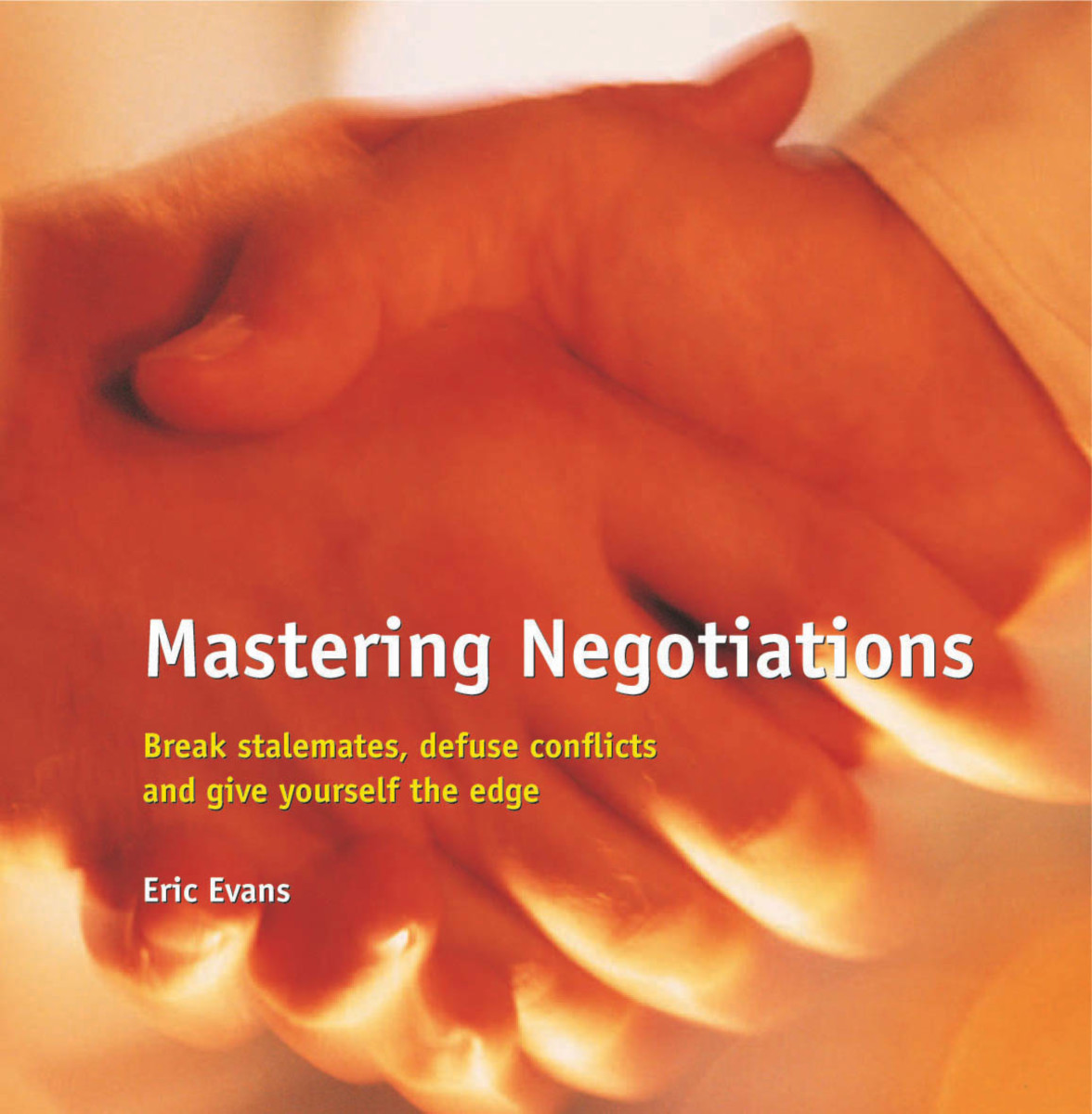BUSINESS BOOKS AND REPORTS
Mastering Negotiations
Break Stalemates, Defuse Conflicts and Give Yourself the Edge
- Publisher
THO - Published
1st July 1998 - ISBN 9781854180575
- Language English
- Pages 208 pp.
- Size 6.25" x 9.25"
With so much of modern business and enterprise relying on the ability to reach mutually beneficial agreements, the so called "win-win" situation, the modern manager needs to be able to plan, deliver and follow through on critical negotiations.
This book provides the core skills needed to succeed and:
Focuses on all aspects of negotiations at the senior level
Provides a framework for effective action
Develops negotiating skills to an advanced level, showing managers how to achieve the best possible agreement and how to make sure it lasts.
CHAPTER 1: ALTERNATIVE APPROACHES TO NEGOTIATION
What is there to master?
So what is negotiation?
Argument?
Discussion?
Compromise?
Getting your own way?
Negotiation is, therefore
How we learn to negotiate
Alternative approaches
Compromise
Win/perceived win
Win/lose
Genuine win/win
You always have a choice
The characteristics of competitive and co-operative negotiation
The drive towards competitive negotiations
Summary and concluding remarks
CHAPTER 2: MASTERING THE PLANNING STAGE
British Electronics: a case study
What is there to plan?
Task issues
Task issues: information
Task issues: tradables
Task issues: concession patterns
Task issues: power
Task issues: the first five minutes
Process issues: making best use of time
1. Exploration of options
2. Objectives
3. Common ground and long term perspective
4. Sequence planning
Process issues: co-operative negotiations
1. Interests
2. Options
3. Alternatives: the real power
4. Legitimacy
British Electronics: a solution to the case study
Genuine interests
Understanding the other side’s genuine interests
Options
Common ground and long term perspectives
The negotiations proper
Summary and concluding remarks
CHAPTER 3: MASTERING COMPETITIVE NEGOTIATIONS
Why can’t all negotiation be win/win?
The phases of competitive negotiation
The opening phase
The testing phase
The movement phase
The closing phase
Summary and concluding remarks
CHAPTER 4: MASTERING CO-OPERATIVE NEGOTIATIONS
Why co-operative?
An alternative approach?
A strategy for finding trade-offs
Creating integrative agreements
Co-operative negotiations with problem people
Summary and concluding remarks
CHAPTER 5: MASTERING PERSUASION
So why is persuasion important?
How do we persuade people?
Logical persuasion
Power and co-ercion
Compromise
Mutually advantageous concessions
Changing attitudes by the use of emotion
Understanding the other side’s genuine objectives and motives
So what does this mean?
The skills of persuasion
Creating doubt
Creating movement
Common persuasion traps
Making quick counter proposals
Loose words
Inductive disagreement
Low responders
Timing
Persuasive behaviour
Summary and concluding remarks
CHAPTER 6: MASTERING POWER IN NEGOTIATION
Does power work in negotiation?
So what is power?
Perception
The power of authority
The power to reward
The power of coercion
Expert power
Connection power
The power of information
Charismatic power
The power to disrupt
Some surprising findings
Practical remedies for dealing with power
Power can always be created
The power of an alternative
Changing the package
Change the time frame
Exploit the information base
Changing of the source of power
Ignore it
Develop an irrational option
Put off the negotiation
Summary and concluding remarks
CHAPTER 7: MASTERING COMMONLY MADE MISTAKES IN NEGOTIATION
Why concentrate on mistakes?
Control skills
Questions
Listening
Answers
Talk too much
Relationship skills
Receptive to ideas
Emotion
Words
Reading and using body language
Achievement
Predictability
Argument dilution
Like to be liked
Impression management
Summary and concluding remarks.
CHAPTER 8: MASTERING NON-VERBAL BEHAVIOUR
Is there a body of fact behind body language?
Types of signal
The eight categories of non-verbal behaviour
Facial expressions
Gaze
Gestures
Posture
Contact
Proximity
Orientation
Appearance
Summary and concluding remarks
Eric Evans
Eric Evans is a management consultant, author and practitioner, specialising in procurement and relationships between suppliers and their customers. He has held director level positions with a number of organisations, including Dunlop and Diageo. His consulting experience covers Europe, North America, Latin America, Africa and the Far East and his clients include IBM, Nokia, Mercedes Benz, TetraPak, Shell and Argos.


